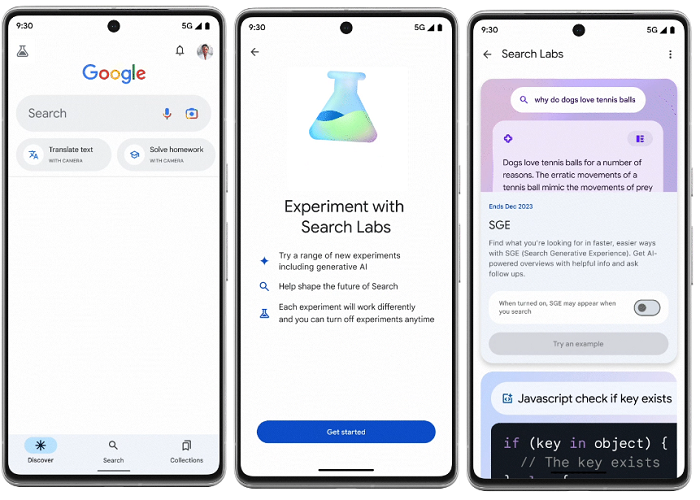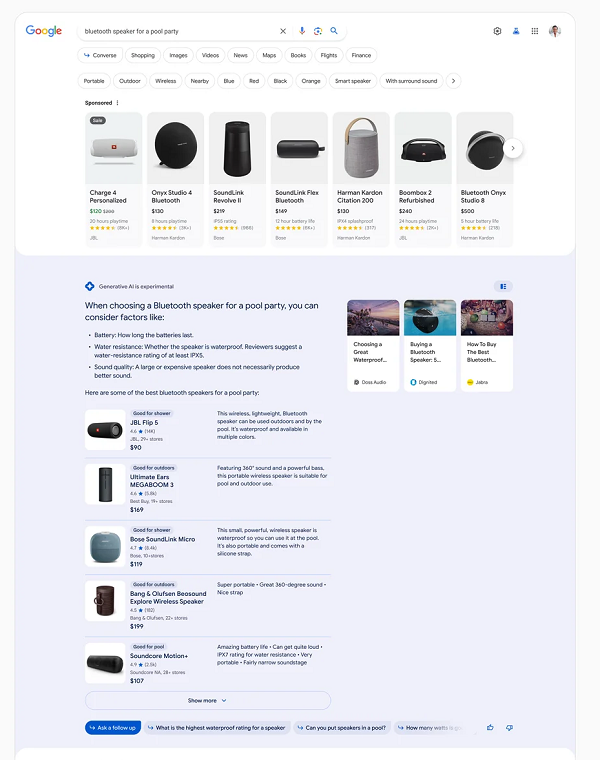Google’s making its new generative AI tools available to more users, with the expansion of its Search Labs early access program, which enables people to try out its AI elements within Search – and also highlights some interesting use cases for product discovery in the app.
Google had initially resisted jumping into the generative AI waters as OpenAI’s tools gained traction, with Google’s view being that such tools are still too prone to errors, and could end up spreading misinformation as a result. But now, with OpenAI partnering with Microsoft, that’s essentially forced Google’s hand – though it is still being relatively cautious in how it implements these new elements, and integrates them with its current Search and ad offerings.
Within the new Search Labs experience – accessible by tapping on the beaker icon in the top right (to approved users) – searchers will be able to get more contextual information on queries, based on the terms that they enter.

As per Google:
“The new generative AI powered Search experience will help you take some of the work out of searching, so you can understand a topic faster, uncover new viewpoints and insights and get things done more easily. So instead of asking a series of questions and piecing together that information yourself, Search now can do some of that heavy lifting for you.”
So it’s much like ChatGPT, in that it will provide you with an overview of a topic, as opposed to just the search matches, though Google’s looking to integrate these results into its regular SERPs, meaning that generative AI results won’t replace traditional Search, as such, but will offer additional pointers and guidance within the process.
Which also relates to shopping.

As you can see in this example, with Google’s new generative search pointers, the results will display additional contextual notes in-stream, which could help to streamline your discovery process.
For brands, that could make it more important to ensure that you’re addressing long-tail queries with explainers and info on your site, in order to better align with more specific matches. As you can also see in this example above, unlike ChatGPT, Google’s still looking to highlight relevant web links – so Google’s essentially looking to remain a key driver of referral traffic, while also aligning with advancing generative AI trends.
It’s an interesting approach, which will keep Google’s systems aligned with its core business, and could end up driving more benefit, for both Google and Search users, in the long term.
By ensuring that relevant links are still the focus, that also provides more means to double-check and confirm the info being generated, which could actually be more beneficial than the ChatGPT Q and A approach. Within that process, ChatGPT presents its responses as fact, when they’re often not – while Google will still be looking to refer users to third-party sources, even with its generative AI prompts.
It’ll be interesting to see how the system develops. You can sign up for the Search Labs waitlist at labs.google.com/search.



